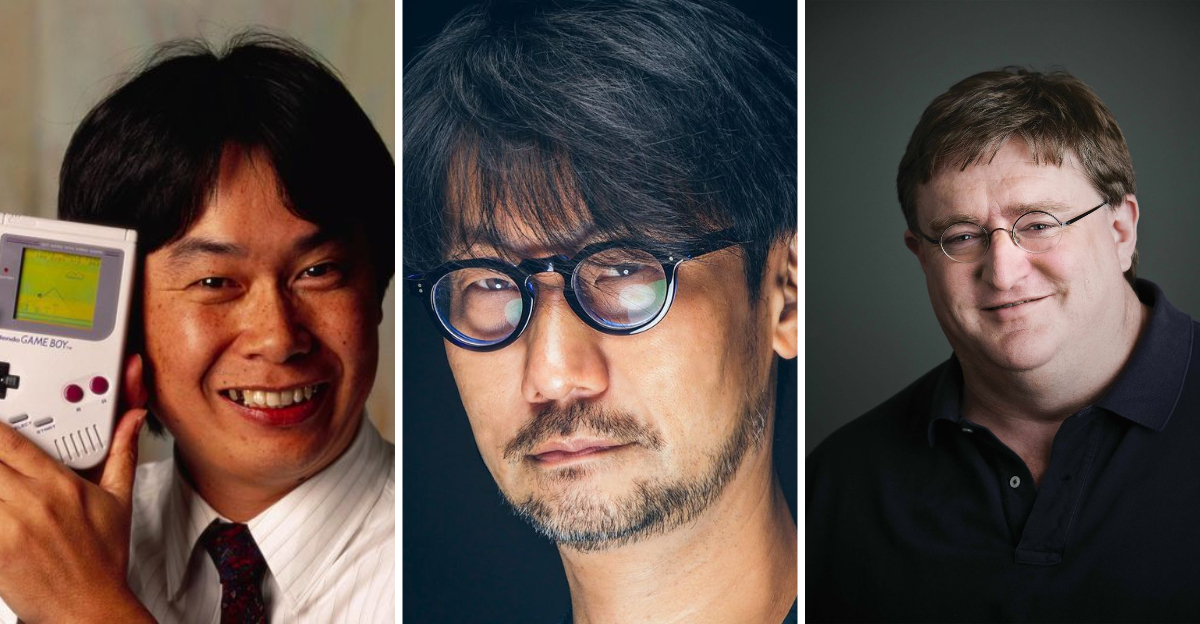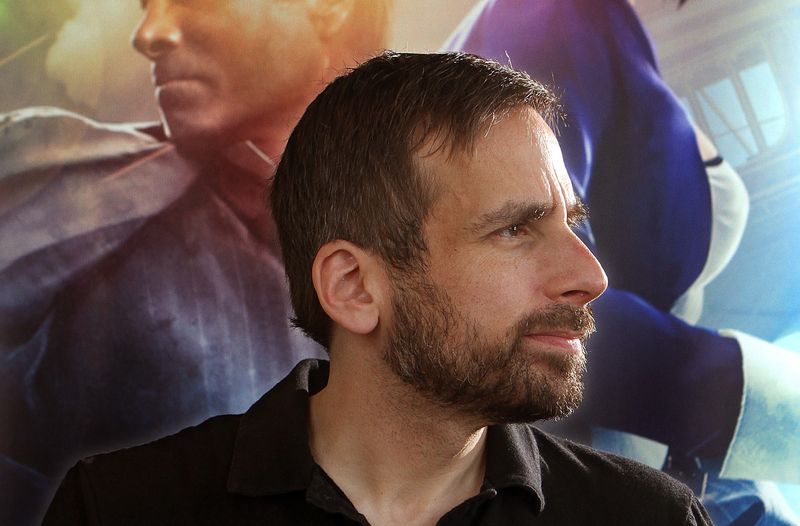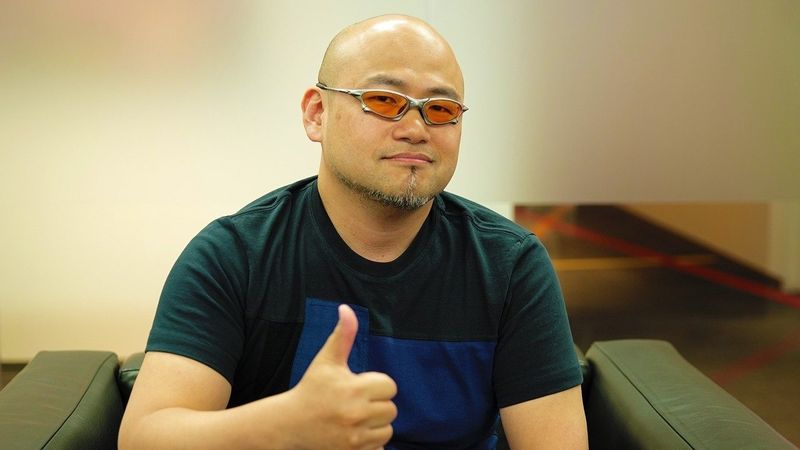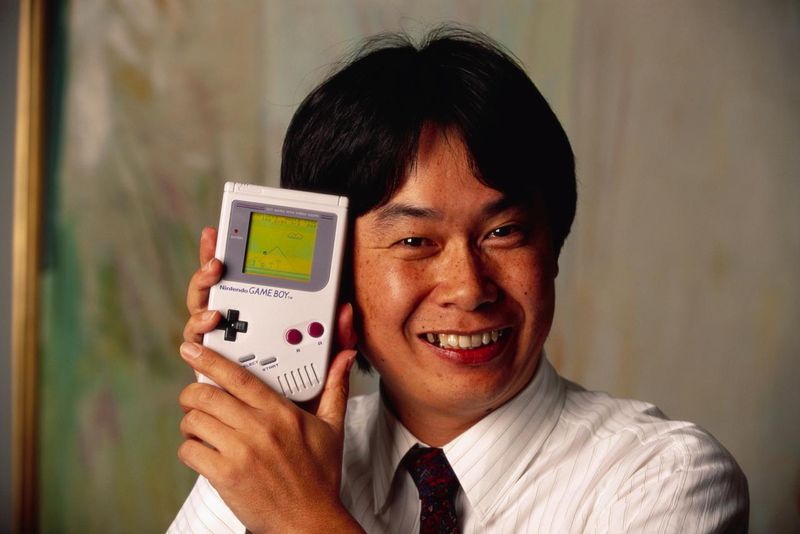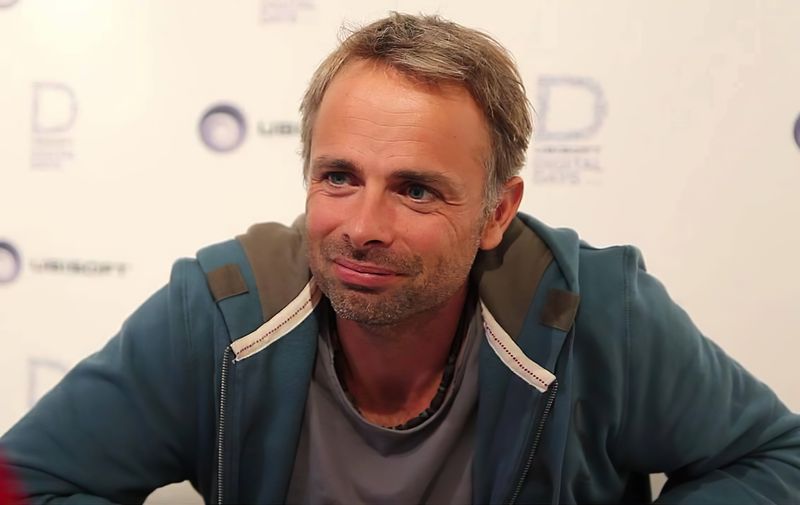The 2000s were a pivotal decade for video games, as the industry matured and went mainstream. Behind every blockbuster and groundbreaking innovation were creative minds who pushed the boundaries of what games could be.
Here are 12 game developers who had a major impact on the industry during the 2000s.
1. Will Wright (Maxis)
Will Wright, the creative genius behind Maxis, revolutionized simulation games in the 2000s. With The Sims and SimCity 4, Wright brought life simulation into the mainstream, delighting players worldwide. His games emphasized creativity and open-ended play, allowing players to craft their own stories.
Wright’s influence is seen in the way his titles encouraged exploration and experimentation. By focusing on player agency, he empowered gamers to shape their virtual environments. The success of The Sims demonstrated the appeal of simulation-based gameplay, influencing a range of genres and inspiring countless developers.
2. Ken Levine (Irrational Games)
Ken Levine, the mastermind at Irrational Games, redefined narrative depth in first-person shooters with BioShock. His work in the 2000s showcased a seamless blend of storytelling and gameplay. Levine’s games featured rich, immersive worlds that were both compelling and thought-provoking. The unique blend of atmospheric environments and innovative mechanics set BioShock apart as a milestone in gaming. Levine’s approach demonstrated how storytelling could elevate the player’s experience, leaving a lasting impact. His influence is seen in how modern games integrate narrative elements, enriching the gameplay and creating memorable adventures.
3. Cliff Bleszinski (Epic Games)
Cliff Bleszinski, a key figure at Epic Games, revolutionized third-person shooters with the Gears of War series. During the 2000s, Bleszinski introduced cover-based mechanics, setting a new standard for tactical gameplay. His work emphasized cinematic action, combining intense combat with engaging narratives.
Bleszinski’s approach to game design elevated the genre, inspiring countless developers. The popularity of Gears of War demonstrated the appeal of immersive, action-packed experiences. His influence is evident in the evolution of shooters, where strategy and storytelling are integral to gameplay, creating dynamic and engaging player experiences.
4. Peter Molyneux (Lionhead Studios)
Peter Molyneux, the creative visionary at Lionhead Studios, was known for his ambitious game designs in the 2000s. With titles like Fable and Black & White, Molyneux introduced innovative mechanics that pushed the boundaries of traditional gameplay. His work often focused on player choice and moral decision-making, adding depth to the gaming experience.
Molyneux’s games were celebrated for their imaginative worlds and intricate storytelling. Though his ambitions sometimes surpassed technological limits, his ideas inspired future advancements. His contributions are seen in how modern games embrace player agency and narrative complexity, enriching the gaming landscape.
5. Hideo Kojima (Konami)
Hideo Kojima, a visionary at Konami, reshaped the storytelling narrative in gaming during the 2000s. Known for Metal Gear Solid 2 and 3, Kojima introduced cinematic techniques, enhancing the immersive experience. His work often featured intricate plots that were both engaging and thought-provoking.
Kojima’s dedication to pushing the limits of narrative complexity set a new standard for storytelling in games. The integration of detailed character development and high-stakes drama redefined what players could expect. Kojima’s legacy is seen in how narrative-driven games prioritize story alongside gameplay, creating unforgettable experiences.
6. Hideki Kamiya (Clover Studio, PlatinumGames)
Hideki Kamiya, a prominent figure at Clover Studio and PlatinumGames, was celebrated for his stylish action games in the 2000s. With titles like Devil May Cry and Okami, Kamiya brought unique visual flair and innovative gameplay to the forefront.
His work emphasized creativity and originality, setting his games apart in a crowded market. Kamiya’s approach showcased the potential for blending art and play, resulting in visually stunning and engaging experiences. His influence is evident in the evolution of action games, where style and substance go hand in hand, captivating players and inspiring future creators.
7. Tetsuya Nomura (Square Enix)
Tetsuya Nomura, a key designer at Square Enix, brought a unique blend of RPG depth and action to gaming in the 2000s. Known for Kingdom Hearts and Final Fantasy X, Nomura combined iconic Disney elements with immersive storytelling. His work introduced new audiences to role-playing games, expanding their appeal.
Nomura’s games were celebrated for their intricate plots and memorable characters, engaging players worldwide. His approach emphasized creativity and collaboration, leading to groundbreaking crossovers. Nomura’s influence is seen in how modern RPGs blend narrative richness with dynamic gameplay, offering captivating experiences for players.
8. Gabe Newell (Valve)
Gabe Newell, co-founder of Valve, was a pivotal figure in the evolution of PC gaming. During the 2000s, he spearheaded the development of revolutionary titles like Half-Life 2 and Portal. Newell also introduced Steam, a platform that transformed game distribution, offering developers a new way to reach audiences.
His work at Valve showcased the power of integrating innovative gameplay mechanics with engaging storylines. By fostering a community-driven approach, Newell redefined the relationship between developers and players. His contributions laid the groundwork for digital distribution, changing how games are accessed and enjoyed.
9. John Carmack (id Software)
John Carmack, the technical wizard at id Software, continued to push the boundaries of 3D graphics in the 2000s. With Doom 3, Carmack showcased the power of advanced engine development, revolutionizing visual fidelity in games.
His work emphasized technical precision and innovation, setting new standards for graphics and gameplay. Carmack’s contributions demonstrated the potential of technology to enhance the gaming experience. His approach inspired countless developers, influencing the evolution of game engines and graphics. Carmack’s legacy is evident in how modern games prioritize technical excellence, offering players stunning and immersive worlds to explore.
10. Markus Persson (Mojang)
Markus Persson, the indie developer behind Mojang, created a global phenomenon with Minecraft in its alpha stage in 2009. His work emphasized creativity and open-ended play, allowing players to construct their own worlds. Persson’s approach showcased the potential for indie developers to impact the industry, inspiring a new generation of creators. Minecraft’s success demonstrated the appeal of sandbox-style gameplay, influencing countless titles.
By focusing on player agency and exploration, Persson empowered users to shape their experiences. His contributions laid the groundwork for future indie successes, proving that creativity and simplicity could captivate a global audience.
11. Shigeru Miyamoto (Nintendo)
Shigeru Miyamoto, the creative force at Nintendo, continued his legacy in the 2000s with groundbreaking titles like The Legend of Zelda: Wind Waker and Super Mario Galaxy. His vision transformed gaming with innovative gameplay and family-friendly designs. Miyamoto’s approach emphasized creativity and fun, bringing video games into homes worldwide.
He championed the philosophy of intuitive play, which made his titles accessible to all ages. By seamlessly blending engaging stories with interactive worlds, Miyamoto’s influence extended beyond traditional gaming. His impact is evident in how games are crafted and enjoyed today, offering joy to generations of players.
12. Michel Ancel (Ubisoft)
Michel Ancel, a creative force at Ubisoft, was celebrated for his imaginative game design in the 2000s. With titles like Beyond Good & Evil and Rayman, Ancel crafted whimsical worlds filled with emotional depth and engaging narratives.
His work emphasized the importance of storytelling and character development, setting his games apart. Ancel’s approach showcased the potential for games to evoke emotion and captivate audiences. His influence is seen in the evolution of narrative-driven games, where creativity and story are integral to the experience. Ancel’s contributions enriched the gaming landscape, inspiring countless developers.
